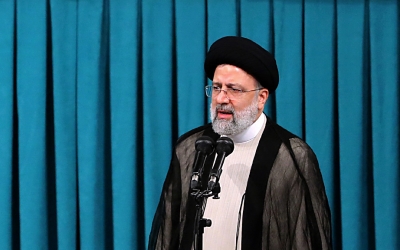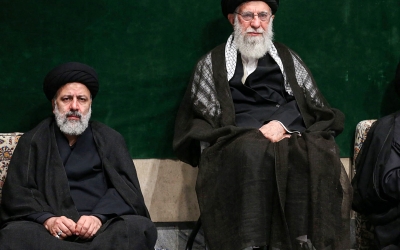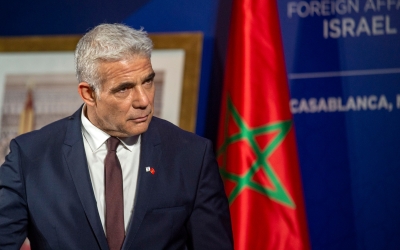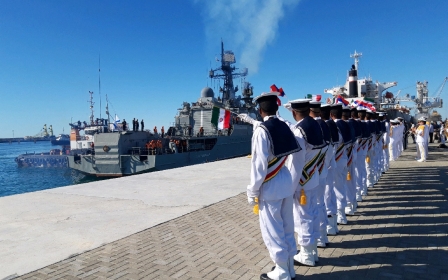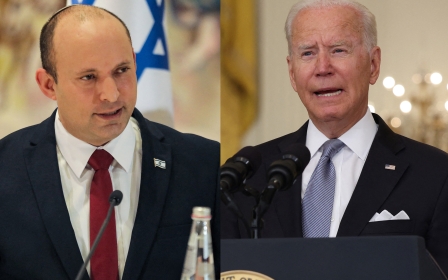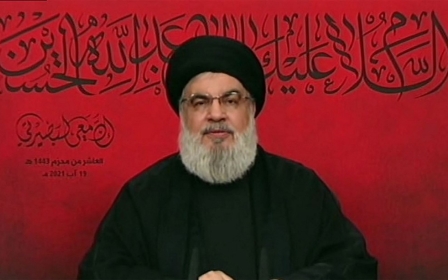Prospects for breakthrough in Iran nuclear talks appear gloomier than ever
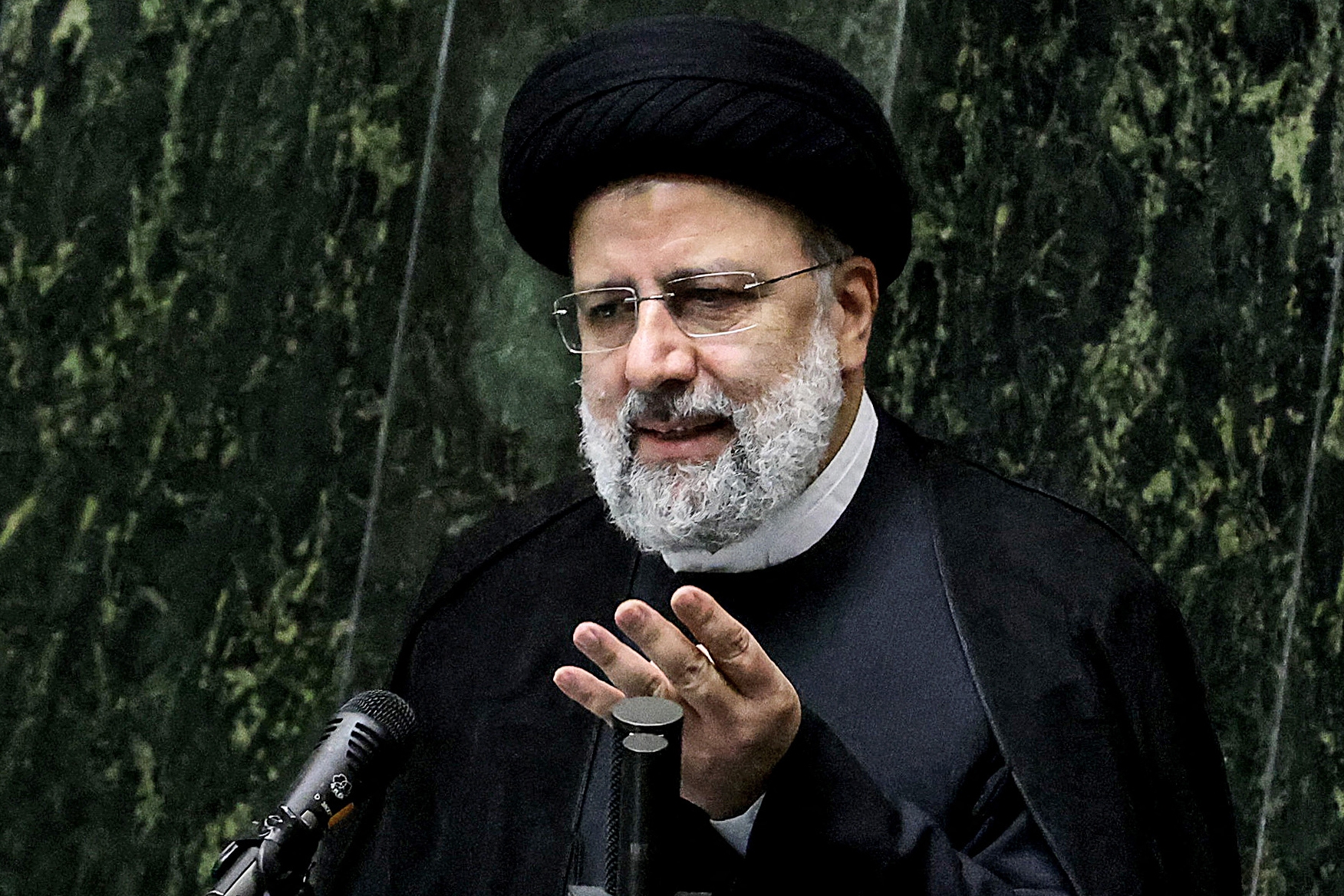
The Biden administration is facing the sobering reality that returning to the Iran nuclear deal may no longer be feasible, following the coming to power of hardliners in Tehran.
Iran and world powers signed the Joint Comprehensive Plan of Action (JCPOA) in 2015, which provided some sanctions relief for Tehran in exchange for curbs on its nuclear programme.
However, former US President Donald Trump walked away from the accord in 2018 and reinstated the crippling sanctions, prompting the Islamic Republic to reduce some of its commitments in 2019.
Since Joe Biden entered the White House earlier this year, his administration has sought a return to the deal. In April, the US and Iran informally began talks on re-entering the deal, brokered by five other signatories to the agreement - Russia, China, France, Germany and the UK.
However, the last round of negotiations in Vienna ended without a set date for the next round.
New MEE newsletter: Jerusalem Dispatch
Sign up to get the latest insights and analysis on Israel-Palestine, alongside Turkey Unpacked and other MEE newsletters
The administration of moderate Iranian President Hassan Rouhani, who had clinched the historic deal with the P5+1, failed to save his legacy and revive the JCPOA before being replaced by his hardline rival Ebrahim Raisi.
While the new Iranian president was expected to reject further negotiations with the West, Raisi raised hopes for a final resolution on the nuclear standoff during his inauguration speech, where he said he would embrace "any initiative" that would lead to the lifting of US sanctions.
"The sanctions against Iran must be removed, and we will support any diplomatic initiative which would help realise this goal," Raisi said in his speech on 5 August.
However, it was soon revealed - by his choices for key positions and the remarks made by his future cabinet members - that the hardline administration will be, unsurprisingly, bringing a tough line to talks in Vienna.
Raisi designated Hossein Amir-Abdollahian, a staunch anti-westerner with close ties to the Islamic Revolutionary Guard Corps (IRGC), Lebanon's Hezbollah, and other forces loyal to the Islamic Republic in the region, as foreign minister.
During the Rouhani administration, Amir-Abdollahian served as a deputy foreign minister but was later sacked by outgoing Foreign Minister Javad Zarif because of his radical views.
"Even if hundreds of JCPOAs are signed, they won't benefit the Iranian nation, unless American politicians stop their sick totalitarian habit (seeking excessive demands)," Amir-Abdollahian said in a 2020 interview with the IRGC-affiliated Tasnim news agency, calling the JCPOA "a big lesson for the contemporary world".
Hardline foreign policy
The same approach is expected to dominate Iran's foreign policy in the next four years, at least.
Hooman Abedi, a political commentator and a correspondent for the state-run Press TV, said the Raisi administration "will not show leniency in its approach on the nuclear deal and may even take some more radical decisions".
Abedi told Middle East Eye that Raisi's administration is unlikely to abandon the Vienna talks, but the process could be drawn out and procrastinated.
An Iranian nuclear negotiator recently told Reuters that the Raisi administration and the country's new foreign minister will "adopt a very tough line in the [Vienna] talks", should the foreign ministry remain in charge of Iran's nuclear dossier.
In recent weeks, there have also been conflicting reports about the body that will take the helm of indirect talks with the US.
Local media reports have suggested the Supreme National Security Council - which directly reports to the Supreme Leader Ali Khamenei and was in charge of the nuclear talks before Hassan Rouhani's presidential term - will once again call the shots. However, there are also reports that the Raisi administration will remain in charge, and Amir-Abdollahian will lead the Iranian team.
In any case, the country's policies are essentially determined by Khamenei, with administrations having little say when it comes to the Islamic Republic's foreign policy and nuclear agenda.
"While both the current and the previous governments in Iran are armed with the full support of the supreme leader [Khamenei] in the talks, Raisi's government enjoys the backing of the parliament and [enjoys] good relations with the IRGC," Ali Hashem, a research fellow at the Sectarianism, Proxies and De-sectarianisation (Sepad) project, based at Lancaster University's Richardson Institute, told MEE.
"This means any deal reached would have the needed grounds to prevent any controversies around it."
No deal without lifting US sanctions
Two days after Raisi's inauguration, a senior European Union official said Iran was ready to resume the suspended Vienna talks as soon as early September, according to the AFP and DPA news agencies.
The EU official, speaking on condition of anonymity, said Iran's representatives had given assurances that talks would resume. However, the prospects for any breakthrough look grim.
Meanwhile, Iran's first vice-president, Mohammad Mokhber, said on 14 August that he was not hopeful about a next round of talks.
"The supreme leader and the president are putting great emphasis on the [need for] removal of sanctions, but it is unlikely that we will be able to reach anywhere [in the talks] with the hegemonic powers," Mokhber said at a ceremony in Tehran.
Raisi's deputy emphasised that Iran would not make plans for running the country dependent on the removal of sanctions, assuming the US was not going to lift the measures.
Sina Toossi, a political commentator and a research fellow at the National Iranian American Council (NIAC), told MEE that Raisi will need "at least the perception of having gotten more concessions from America" than what Iran initially received in June in order to press forward with talks.
"This could be in the form of expanding the nuclear programme and lowering Iran's breakout time to a nuclear weapon, as a way of increasing pressure on the US and Iran's negotiating leverage."
No matter how the Raisi administration will handle the talks, Iran's Khamenei has made it clear that no deal will happen without the US lifting all sanctions and Iran verifying that.
Outgoing foreign minister, Mohammad Javad Zarif, said earlier this year that Washington's decision to reimpose sanctions on Tehran had inflicted around $1 trillion of damage on the economy.
The sanctions, which have not been eased during the coronavirus pandemic, have increased the cost of living for ordinary people, driving up the prices of everyday goods, including food and medicine.
Toossi said Iran also had a "reasonable demand" that the US give some sort of assurances to not leave the deal again like it did under Trump.
"It is unclear how far the Biden administration will go to ensure Iran gets lasting economic benefits from the deal. But if Iran escalates further at this stage, it risks a dangerous spiral that will weaken Biden's pro-diplomacy position with respect to hawks in Congress and make [the possibility of a] military conflict more likely," he added.
The US and other western nations have insisted that Iran must show readiness to discuss issues beyond the JCPOA, including Tehran's missile programme and regional behaviour.
"There doesn't seem to be any indications that a deal is in the final stages - unless there are behind the scenes talks that we don't know anything about," Hashem said, adding the gap will not be easy to bridge.
"I don't see anything happening for now, [not] at least until the end of 2021."
Middle East Eye delivers independent and unrivalled coverage and analysis of the Middle East, North Africa and beyond. To learn more about republishing this content and the associated fees, please fill out this form. More about MEE can be found here.


